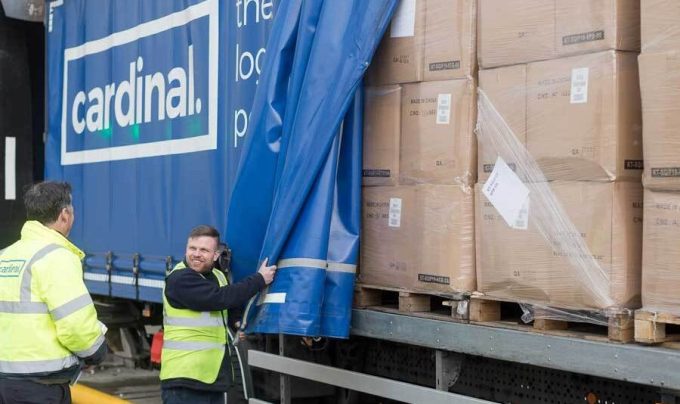Cardinal Global Logistics in Australian investment as part of Asia expansion
Another day, another bit of M&A. Today’s news is that the UK’s Cardinal Global Logistics ...
FDX: ABOUT USPS PRIVATISATIONFDX: CCO VIEWFDX: LOWER GUIDANCE FDX: DISRUPTING AIR FREIGHTFDX: FOCUS ON KEY VERTICALFDX: LTL OUTLOOKGXO: NEW LOW LINE: NEW LOW FDX: INDUSTRIAL WOESFDX: HEALTH CHECKFDX: TRADING UPDATEWMT: GREEN WOESFDX: FREIGHT BREAK-UPFDX: WAITING FOR THE SPINHON: BREAK-UP ALLUREDSV: BREACHING SUPPORTVW: BOLT-ON DEALAMZN: TOP PICK
FDX: ABOUT USPS PRIVATISATIONFDX: CCO VIEWFDX: LOWER GUIDANCE FDX: DISRUPTING AIR FREIGHTFDX: FOCUS ON KEY VERTICALFDX: LTL OUTLOOKGXO: NEW LOW LINE: NEW LOW FDX: INDUSTRIAL WOESFDX: HEALTH CHECKFDX: TRADING UPDATEWMT: GREEN WOESFDX: FREIGHT BREAK-UPFDX: WAITING FOR THE SPINHON: BREAK-UP ALLUREDSV: BREACHING SUPPORTVW: BOLT-ON DEALAMZN: TOP PICK

Cardinal Global Logistics’ migration to an employee-ownership model gave it a route out of the debilitating worker churn plaguing the industry.
Speaking to The Loadstar on the anniversary of the decision by its directors to sell 68% of Cardinal’s stock to an employee-owned trust, CEO Brian Hay said that, despite offers from private equity, it had proved the right call for growing the business.
“In truth we got very, very close to doing a deal with private equity, a deal that would have left the directors with a sizeable cheque on day one,” he said.
“It was very, very tempting, but we just felt that, like selling to a competitor, the company would end up in a cycle where it is simply sold to another private equity house, which undermined the reason we were looking to sell – that was to develop and grow.”
Indeed, Cardinal now has a 550-strong workforce, operating out of 40 offices globally, servicing 6,000 clients and generating revenues exceeding £500m.
After growing from a business launched on a £15,000 loan 27 years ago in Manchester, Mr Hay pointed to its “natural” growth and the fact that it had constantly prioritised employee satisfaction.
“Most of the directors that serve us today started out at entry levels in the business and have grown and developed into the roles they now hold,” Mr Hay continued.
“It is incredibly rare that we recruit at director level, and I think in the 27 years we have only done this twice, and in both cases they were for very specialised roles. This desire to grow the expertise in-house is grounded in a desire to back our people and help fulfil their ambition.”
It certainly seems to be working; as an industry, the logistics sector has been plagued by high staff turnover rates, with polls putting the average at 31% annually.
In Europe, the UK and US, this startlingly high figure has been put on display by the trucker shortage, which left many hauliers scrambling for drivers in the midst of the pandemic, and suggestions are that the rate is increasing every year.
Starkly contrasting with the wider industry, Mr Hay noted that Cardinal’s employee turnover hovered around 7%, “which, as you know, is very, very low”.
He added: “And, I’d say, across industries, just generally, at 7% our employee turnover rate is low because of the perspective through which we approach our workforce, one grounded in paying our staff properly and responsibly.
“That focus really directed our decision to set up the trust, because by moving our employees from employees into partners, they grow as the business grows.”
Comment on this article